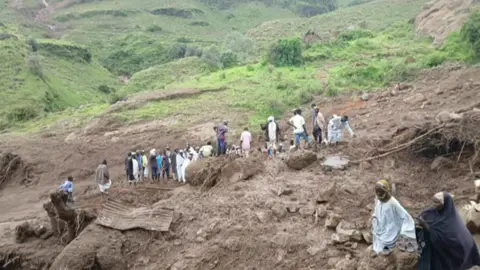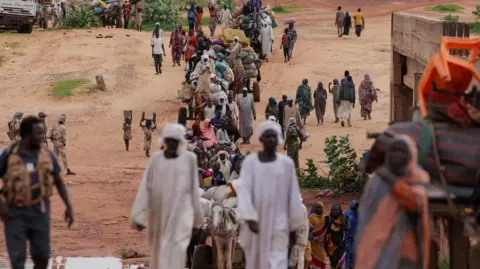Daoud’s "Houris" vividly portrays a period in which nearly 200,000 lives were lost to violence driven by Islamist groups and government forces. The protagonist, Fajr, narrates her traumatic journey while bearing a physical scar from an assault, symbolizing the scars left on society by war. “It gives voice to the suffering of a dark period in Algeria, particularly the suffering of women,” stated the Goncourt committee.
Despite this recognition, the irony remains that few Algerians may access Daoud's narrative, as there’s no local publisher, and coverage of his success is glaringly absent in Algerian media. Compounding this issue is a 2005 law that entraps public discussions about the civil war in legal jeopardy, making such topics dangerous for authors like Daoud who dare to delve into the nation’s historical pain. He remarked on this, expressing concern that the reality of the civil war isn’t shared with younger generations, with schools failing to include it in the curriculum.
Daoud has personal ties to the turmoil, as a journalist during the civil war, he has faced government scrutiny for his outspoken criticism of the state’s handling of historical narratives. His works aim to dissect the complexities of Algeria’s identity and its socio-political landscape, particularly regarding women’s rights.
Since relocating to Paris in 2020, Daoud reflects on the freedoms that come with being a writer in France, stating, “To write you need three things. A table, a chair, and a country. I have all three.” His literary contributions continue to stir controversy and admiration, showcasing a divided perception of his identity as both an artist and an Algerian in exile.
Whether embraced or shunned, Kamel Daoud remains a pivotal figure whose writings challenge societal narratives, urging a deeper understanding of Algeria’s past and its implications for the future.
Despite this recognition, the irony remains that few Algerians may access Daoud's narrative, as there’s no local publisher, and coverage of his success is glaringly absent in Algerian media. Compounding this issue is a 2005 law that entraps public discussions about the civil war in legal jeopardy, making such topics dangerous for authors like Daoud who dare to delve into the nation’s historical pain. He remarked on this, expressing concern that the reality of the civil war isn’t shared with younger generations, with schools failing to include it in the curriculum.
Daoud has personal ties to the turmoil, as a journalist during the civil war, he has faced government scrutiny for his outspoken criticism of the state’s handling of historical narratives. His works aim to dissect the complexities of Algeria’s identity and its socio-political landscape, particularly regarding women’s rights.
Since relocating to Paris in 2020, Daoud reflects on the freedoms that come with being a writer in France, stating, “To write you need three things. A table, a chair, and a country. I have all three.” His literary contributions continue to stir controversy and admiration, showcasing a divided perception of his identity as both an artist and an Algerian in exile.
Whether embraced or shunned, Kamel Daoud remains a pivotal figure whose writings challenge societal narratives, urging a deeper understanding of Algeria’s past and its implications for the future.


















